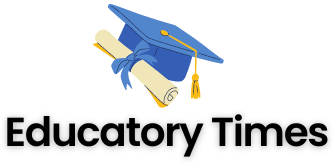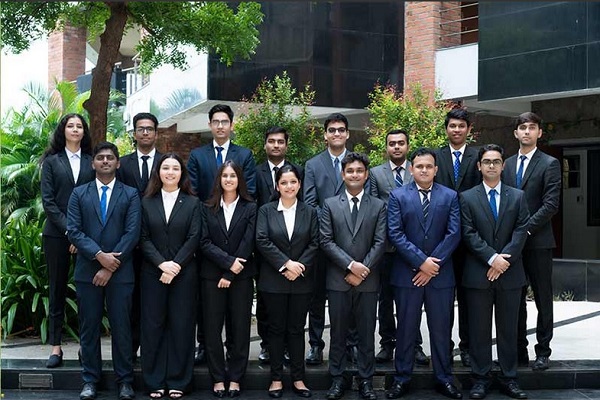The path of college life is one of transformation and adventure, offering many chances for development and education. Creating productive study habits and techniques is essential for college student’s academic achievement and personal growth. In this article, we’ll look at eight excellent suggestions that every college student should use to maximize their academic performance. You can optimize your learning capacity, maintain organization, use your time wisely, and accomplish your academic objectives by using the advice in this article. You can succeed in your academics, navigate college with confidence, and build a solid foundation for success in the future by putting these techniques into practice.
Create a Study Schedule
For efficient time management and to maintain a systematic approach to your studies, you must make a study calendar. Consider your course load and set out specific times for each topic. When planning study sessions, take into account your own preferences and productivity tendencies. To avoid burnout, create a schedule that mixes intense study time with breaks. To establish discipline and make sure you have enough time to cover all the content, stick to your timetable regularly.
Find Your Optimal Study Environment
Finding your ideal study environment is essential to sustaining concentration and productivity. Try out several environments to see where you feel most at ease and productive. While some students can do best in quiet libraries, others might like the ambient noise of a coffee shop. Make sure your study area is clutter-free, well-lit, and well-organized. To further improve your focus, think about using technologies like online productivity applications or noise-canceling headphones.
Take Effective Notes
For material to be retained and understanding to be facilitated, taking excellent notes during lectures and when studying is essential. Whether you like handwritten notes, digital note-taking, or a mix of both, figure out what note-taking method works best for you. During lectures, pay attention to the essential ideas, supporting details, and important topics. Make notes that are succinct and well-organized so you can review them later. To improve your knowledge, highlight crucial information, utilize visual aids like diagrams or charts, and draw links between various subjects.
Utilize Active Learning Techniques
Active learning approaches can greatly improve your comprehension and memory of material. Engage in active learning activities rather than rote memorization or passive reading. Participate in class discussions, raise questions as appropriate, and seek clarification as necessary. Create concept maps or flashcards, review and summarize the content in your own terms, and impart knowledge to others. The several methods you interact with the subject encourage critical thinking, increase learning, and improve your memory for facts during tests.
Seek Help When Needed
Always be bold and ask for assistance when you run across problems or want clarification. Make use of the resources that are accessible, such as tutoring programs, teaching assistants, and professors. Attend office hours to ask questions, clarify ideas, get help with assignments, or get more resources. To share ideas and provide support for one another, work with classmates in study groups or online forums. Recognize that seeking assistance is a show of strength rather than weakness and that being proactive in resolving problems can boost performance and confidence.
Stay Organized and Use Tools
Organization is essential for one to keep on top of deadlines, assignments, and tests. Use tools like calendars, planners, or digital applications to organize your schedule and remember crucial events. For homework and assignments, use an essay title generator tool. To keep organized and make sure nothing gets missed, break things down into to-do lists and create reminders. Make use of technology by using note-taking applications, online collaboration tools, or productivity apps that can help you organize your work and be more productive.
Break Tasks into Manageable Chunks
Effective task management is essential for preventing overload and sustaining efficiency. Larger jobs, such as assignments or projects, should be divided into more manageable components. Establish clear objectives and due dates for each component to guarantee continual advancement. Put tasks in order of significance and urgency, starting with the most urgent ones. To sustain productivity and avoid burnout, adopt time management strategies like the Pomodoro Technique (working in concentrated bursts with pauses).
Practice Self-Care
Academic achievement depends heavily on taking care of your general well-being. Utilize self-care techniques in your daily routine to lower stress, increase attention, and preserve a good work-life balance. Exercise regularly, meditate or practice mindfulness, get enough sleep, and eat healthful foods. Make time for the things you want to do, including hobbies, hanging out with friends, or exploring your creative side. Making self-care a priority will give you the strength and focus you need to succeed academically.
Conclusion
College students who implement these suggestions will be better able to maximize their studies, improve their learning environment, and succeed academically. Students can successfully traverse the college experience by developing a study timetable, locating the best study space, taking excellent notes, adopting active learning strategies, etc. They can also flourish in their academic endeavors. It’s important to keep in mind that creating productive study habits and methods is a constant process, so be willing to change your strategy as you find what works best for you. You can succeed academically and maximize your college experience with commitment, discipline, and a proactive approach.




